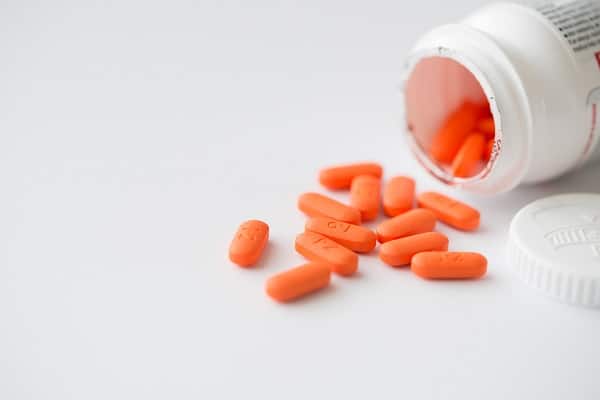When you’re not feeling well, the last thing you want to do is spend time reading labels in search of the right medication. Instead, you just want to feel better! Unfortunately, not all over-the-counter medications are created equal. Some can actually make you feel worse. Whether it’s due to their ingredients, side effects, or interactions with other medications, some OTCs can do more harm than good. This post will look at the worst over-the-counter medications for your health. So, stay safe and healthy by avoiding these drugs!
Contents
Midol

Midol is a medication sold to women who are experiencing menstrual cramps. It is supposed to provide relief by reducing inflammation and bloating. However, Midol contains a number of ingredients that can actually be harmful to your health. For example, it contains caffeine, which can cause dehydration and lead to headaches. It also contains acetaminophen, which can damage the liver.
In addition, Midol often contains artificial sweeteners, which may cause weight gain and other health problems. Overall, Midol is not a good choice for women who are looking for a safe and healthy way to reduce their menstrual cramps. There are better options available that do not come with the same risks to your health.
Prilosec

You might not think twice about reaching for Prilosec when you have heartburn, but this over-the-counter medication can have severe consequences for your health. Prilosec belongs to a class of drugs called proton pump inhibitors (PPIs), which work by reducing the amount of acid in the stomach. While this can be an effective short-term treatment for heartburn, long-term use of PPIs can cause various health problems, including kidney disease, bone fractures, and dementia.
Furthermore, some common Priolsec uses you could better treat with lifestyle changes or other medications. For example, many people take PPIs for heartburn that is due to stress or diet. If you suffer from occasional heartburn, try making some simple lifestyle changes before reaching for a PPI. If your symptoms persist, talk to your doctor about other possible treatments.
Benadryl

Benadryl is an over-the-counter medication that is often taken to treat allergies. However, while it may be effective at treating allergy symptoms, it can also have a number of adverse side effects. For example, Benadryl can cause drowsiness, dizziness, and confusion. It can also interact with other medications, such as antidepressants and blood pressure medications.
Additionally, Benadryl is not safe for pregnant women or nursing mothers due to its ability to cross the placenta and enter breast milk. Therefore, while Benadryl may treat allergies effectively, it is not without its risks. As such, it is crucial to weigh the risks and benefits before taking this medication.
Tylenol

Tylenol is one of the most popular over-the-counter medications but also one of the worst for your health. Acetaminophen, the active ingredient in Tylenol, is a known hepatotoxin, which means it can cause liver damage. In fact, acetaminophen is the leading cause of acute liver failure in the United States. The liver is responsible for metabolizing drugs and toxins, so when it is damaged, it can no longer properly filter these substances from the blood.
This can lead to a build-up of toxins in the body and potentially fatal consequences. In addition to liver damage, acetaminophen use may lead to other serious health problems, including kidney damage, gastrointestinal bleeding, and increased risk of stroke. For these reasons, it is best to avoid Tylenol and other acetaminophen-containing products when possible. If you must take a medication containing acetaminophen, take the lowest dose possible and monitor your liver function closely.
Pepto Bismol

Pepto-Bismol is an over-the-counter medication people use to treat various gastrointestinal issues, such as indigestion, nausea, and diarrhea. However, Pepto-Bismol can also come with harmful side effects. The active ingredient in Pepto-Bismol is bismuth subsalicylate, which can cause black stools and constipation. In addition, Pepto-Bismol can interact with certain medications, such as antacids and blood thinners.
If you are taking any other medications, it is important to talk to your doctor before taking Pepto-Bismol. In some cases, the side effects of Pepto-Bismol may outweigh the benefits. Therefore, it is essential to weigh the pros and cons of taking this medication before self-medicating.
Sudafed

Sudafed is a decongestant commonly taken to relieve nasal congestion and sinus pressure. However, Sudafed can also have some pretty serious negative effects on your health. The main active ingredient in Sudafed is pseudoephedrine, which is a stimulant. This means that it can cause side effects such as increased heart rate, insomnia, and anxiety. In addition, Sudafed can also increase blood pressure and constrict blood vessels.
This can be dangerous for people with high blood pressure or other cardiovascular conditions. Finally, Sudafed can also interact with other medications, such as MAO inhibitors and beta-blockers. That is why it is essential to talk to your doctor before taking Sudafed. While it may be effective at treating nasal congestion, it may do you more harm than good.
Vicks VapoRub

Vicks VapoRub is a popular over-the-counter cough suppressant and topical analgesic. For generations people have been using it to relieve congestion, headaches, and muscle aches. However, Vick’s VapoRub is not without its risks. When used topically, it can irritate the skin and lungs. Inhaling the vapors can also cause coughing and wheezing.
Additionally, Vicks VapoRub should not be used on children under two years of age due to the risk of severe side effects. Therefore, while Vicks VapoRub may temporarily relieve cold symptoms, it is vital to use it cautiously.
Use Over-The-Counter Medication With Caution!
There are many over-the-counter medications that can be harmful to your health. That is why it is important to talk to your doctor before taking any medication, even if it is available without a prescription. Unfortunately, some of the worst offenders are the medications on this list. However, that does not mean that all over-the-counter medications are harmful. Just be sure to use them with caution and always follow the directions on the label.


